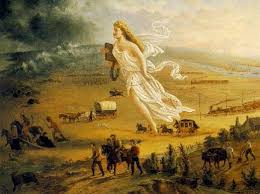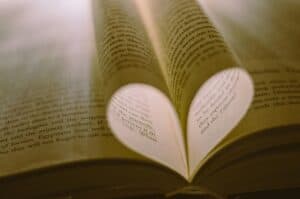Romanticism in Literature
This article explores the nature, definition and various features of Romanticism in literature.
The term “Romanticism” in literature has been variously defined by various writers. Pater, for example, calls it the “addition of strangeness to beauty.” Watts Dunton defines it as, “the renaissance of wonder”. Abercrombie, on the other band, writes, “Romanticism is a withdrawal from outer experience to concentrate upon inner experience.” He points out that vagueness, indefiniteness, and a tendency to disregard reality are essential elements of the Romantic. Legouis and Cazamian call it, “accentuated predominance of emotional life, provoked and directed by the excrcise of imaginative vision”. All such definitions are, however, unsatisfactory and partial, for they emphasise one or the other element of this type of literature instead of giving a composite view.

Chief Characteristics
The chief characteristics of romantic poetry are:
(a) Subjectivity
All romantic literature is subjective. It is an expression of the inner urges of the soul of the artist. The poet does not care for rules and regulations, but gives free expression to his emotions. Emphasis is laid on inspiration and intuition rather than on the observance of set rules. The poet writes according to his own fancy, and is often guilty of wild excesses. Hence it has been criticised as irregular and wild. As the poet is free to write on any theme, and in any form he likes, we have the immense variety of romantic poetry.
(b) Spontaneity
Romantic poetry is spontaneous overflow of powerful feelings. The romantic poet is gifted with a strong “organic sensibility.” He feels more than there is to feel and sees more than theres to see. Carried away by his powerful passions and excited imagination, the poet does not care for the perfection of form or clarity of expression. The result is much vagueness and obscurity. Substance is more important for him than the form.
(c) Love of Beauty and Mystery of the Universe
The romantic is extraordinarily alive to the wonder, mystery and beauty of the universe. He feels the presence of unseen powers in nature. This unseen, transcendental world is more real for him than the world of the senses. The supernatural has a special charm for him; he is attracted by the stories of fairies, ghosts and witchcraft. His poetry is an expression of his wonder at the magic and mystery of the universe. Supernaturalism is an important element in romantic inspiration.
(d) Dissatisfied Individuals
A romantic is a dissatisfied individual. He may be dissatisfied with the circumstances of his own life, with his age, with literary conventions and traditions of the day, or with the general fate of humanity. Romantic poetry is, therefore, often pessimistic in tone. A romantic may revolt against the existing conditions and may seek to reform them, or he may try to escape into an imaginative world of his own creation. Often he escapes into the past.
The Middle Ages have a special fascination for him, for they not only provide him with an escape from the sordid realities of the present but also delight his heart by their colour, pageantry and magic. The remote, the distant and the unknown delight him for this very reason.
While some may escape into the past, (the world of classical antiquity or the Middle Ages) others may dream of a better and happier world to come and build “utopias” of the fature. They may see visions of a golden age, and sing of it in their poetry. In short, the romantics look before and after and pine for what is not.
(e) Zest for External Beauty
Zest for the beauties of the external world characterises all romantic poetry. Romantic poetry carries us away from the suffocating atmosphere of critics into the fresh and invigorating company of the out-of-door world. It not only sings of the sensuous beauty of nature, but also sees into the “heart of things” and reveals the soul that lies behind.
(f) Love of Nature
Love of Nature leads, by an esay transition, to the love of those who live in her lap. The romantics have an instinct for of elemental simplicities of life. Their hearts overfiow with sympathy for the poor and the downtrodden. They glorify the ininnocence and sympathy implicity of the common man. They try to see into the heart of man and understand human nature. They find the divine in Man, plead for his emancipation from all bondage, and claim equal rights and liberties for the humblest. The romantic poetry is democratic.
(g) Simple Diction
Not only do the Romantics treat of the common man, they also use his language for their purposes. Thus Wordsworth raised his voice against the inane and artificial diction of the 18th century classics, and advocated the use of the language of the common man for purposes of poetry. Indeed, he went to the extent of remarking that there is no essential difference between the language of poetry and that of prose.
(h) Love of the Past
Their interest in the past leads the romantics to experiment with old metres and poetic forms. The 18th century had cofined itself to the use only of one metre ie. the Heroic Couplet. With the coming of the romantics there is a revival of a number of ancient metres. The Spenserian stanza, the ballad metre, the blank verse, the lyric, the ode, and the sonnet are all revived and have attain wide popularity.
The revival in ancient metres is accompanied with a renewed interest in ancient English masters. Chaucer, Spenser, Milton, etc., who had suffered an eclipse during the 18th century, now again come to their own. They, and not Pope or Dryden, now become the chosen literary models of the poets. English romanticism is thus both a revolt and a revival; it is a revolt against 18th century traditions and conventions; it is a revival of old English metres and old English masters of poetry.
#Romanticism in literature #Romanticism in literature #Romanticism in literature #Romanticism in literature #Romanticism in literature #Romanticism in literature #Romanticism in literature #Romanticism in literature #Romanticism in literature #Romanticism in literature
Read More
Paradise Lost as a Classical Epic
Renaissance poetry—Age of Rebirth of Arts, Literature and Humanism
Michael Henchard As a Man of Character
Visit Us on our Facebook Page:





